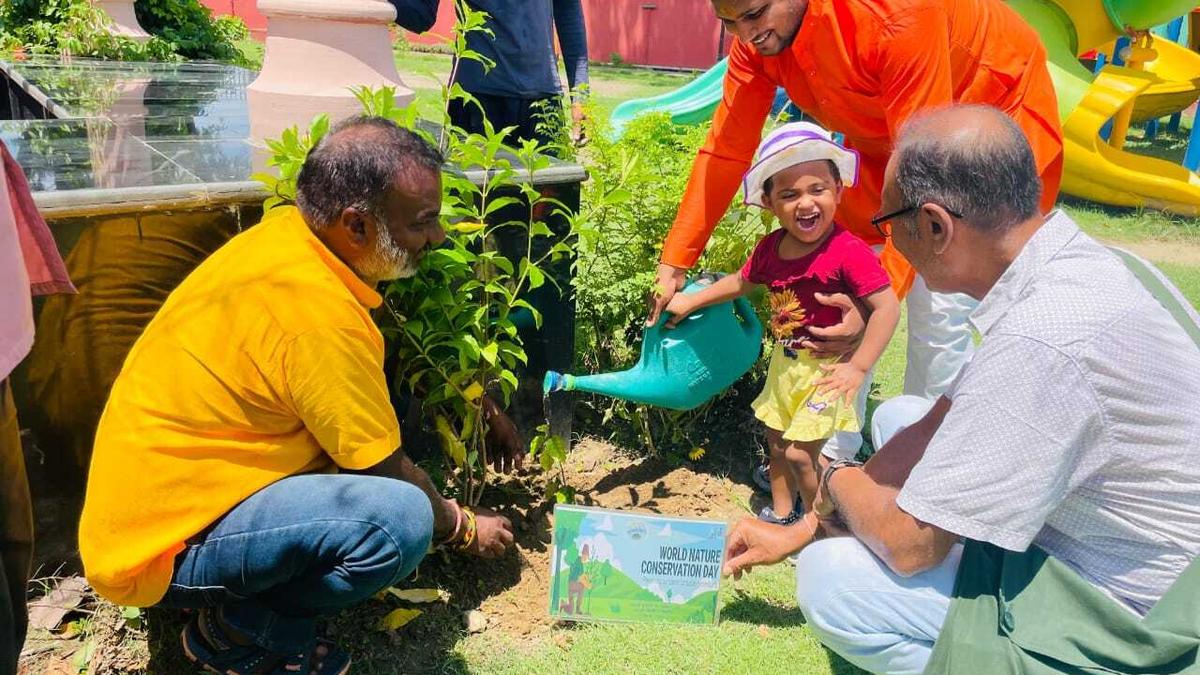
Peer educators from VPM SNDP School, Kazhibram, in Thrissur performing a mime to create awareness against substance abuse.
| Photo Credit: SPECIAL ARRANGEMENT
Adolescence is a journey full of questions, confusion, and change. For many, it’s also the time of silent struggles. But a powerful transformation is taking shape in Kerala.
Through the Peer Educator Project under the Rashtriya Kishor Swasthya Karyakram (RKSK)—an initiative of the National Health Mission and the State Health department—adolescents are being empowered to guide their peers through the challenges of teenage life with empathy, confidence, and accurate knowledge.
The concept is simple but revolutionary—teens are trained to educate their peers on topics many shy away from, mental health, reproductive well-being, substance abuse, cyber safety, and more.
M. Maharaj, a Class 10 student at Government Model Residential School, Erumapetty in Thrissur, says: “This project changed my life. I learned about the dangers of junk food, smoking and cybercrime, and how to handle changes during adolescence. Before, I didn’t even realise how vulnerable we are online. Now, I not only protect myself but also educate my friends.”
Maharaj recalls how he helped his classmates understand the risks of mobile phone overuse and the signs of online traps. “I talk to them about these issues after class. Many didn’t know how addiction to gadgets or tobacco could slowly take over their lives.”
Emotional changes
Another Class 10 student, Vaiga Ramesh of Government Higher Secondary School, Erumapetty, speaks about facing teen stress with new confidence. “I used to be nervous talking about the emotional changes we go through. But through this project, I learned it’s normal and we must approach it positively. I now spend less time on my phone and more time on studies and playing with friends.”
Topics
As a pilot project, 200 students across four blocks in Thrissur district were trained, with support from health inspectors and junior public health nurses. Topics ranged from nutrition to self-defence to emotional resilience. Schools appointed nodal teachers. Support systems such as anonymous Q&A boxes helped even the shyest students seek answers.
Trusted guides
Asha M., a teacher from GMRS Wadakkanchery, says: “The peer educators became trusted guides for their classmates. Health awareness improved, stage fear reduced, and students became more responsible. Some even step in when they see classmates making poor choices.”
With ₹3.5 lakh allocated for 2024-25, the project is showing extraordinary returns—not just in knowledge, but in character building and community impact.
RKSK District Coordinator Nithya Sani affirms: “This model broke the communication barrier between teens and adults. It encouraged healthy habits and opened the door to seeking professional help when needed.”
From shyness to leadership, from doubt to confidence, the RKSK Peer Educator Project is planting the seeds of a healthier, more aware generation. The next batch of teen educators is set to begin training soon, ensuring that the ripple of change continues to grow.
Published – July 19, 2025 07:15 pm IST

